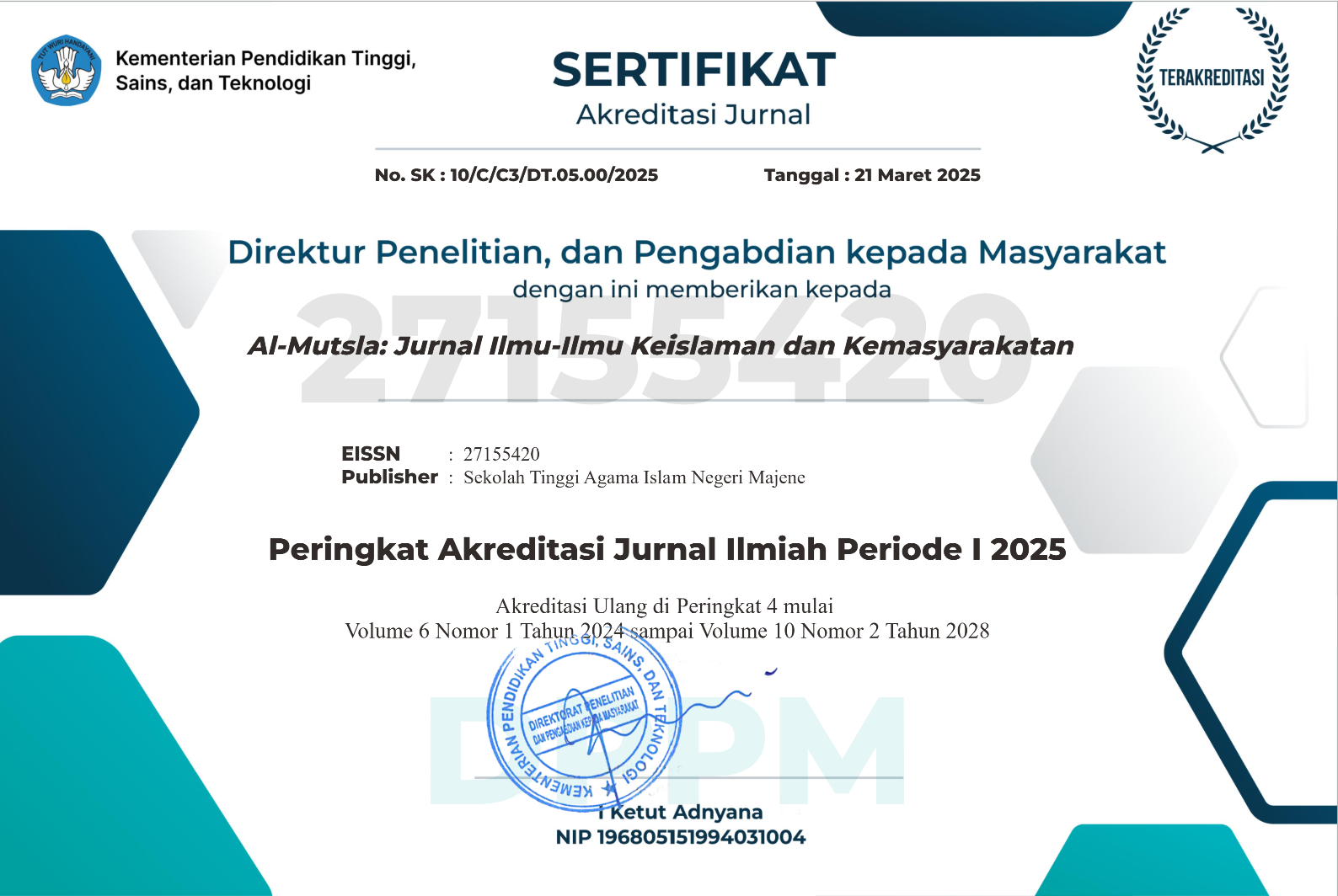Perkembangan Ekonomi dan Keuangan dalam Islam: Inspirasi dari Khulafaur Rasyidin
DOI:
https://doi.org/10.46870/jstain.v6i1.933Keywords:
Kebijakan Publik, Ekonomi Islam, Khulafaur RasyidinAbstract
Islamic economics is the response of Islamic scholars to the economic challenges of their time, which is closely related to the Koran and hadith. Islamic economics is also a social science whose Islamic values influence all of society's economic activities. Islamic economics is part of every aspect of life which is based on four sciences, namely the Al-Quran, Sunnah, Ijma', and Qiyas. This discusses a very inclusive way of life. The aim of this research is to describe the history of public policy and the development of Islamic political economy during the time of Khurafaur Rasyidin. Based on the results of this research, Khulafaur Rasyidin's leadership period consisted of four levels of leadership. The first economic policies implemented during the Khurafaur Rasyidin era were during the Abu Bakr era, the second during the reign of Umar bin Khattab, and the third during the reign of Uthman bin Affan, and finally during the reign of Ali bin Talib. Regarding his leadership, several activities were carried out, namely establishing Baitul, shopping centers, distribution of welfare, pension funds, soldiers' salaries, as well as distribution and collection of zakat to Muslim and non-Muslim communities. All of these activities can help develop the country's economy and improve people's living standards. The method used in this research is the library research method. The data collection technique is to conduct a literature review study regarding the problem to be solved.
Keywoards: Public Policy; Islamic Economics; Khulafaur Rasyidin
Downloads
References
Achmad, Siddiq. Ruh Pemikiran Kh.Achmad Siddiq. Jakarta: Gramedia Pustaka Utama, 2002.
Al-Kaaf, Abdullah Zaky. Ekonomi Dalam Perspektif Islam ,. Bandung: PT. Pustaka Setia Pertama, 2002.
Azzahra, Wulan Lailatus. “Penerapan Ekonomi Islam Pada Masa Kontemporer Dengan Pemikiran Rosulullah” 2, no. 1 (2022).
Dahliana, Difi, Muhammad Rizqi Akbar, Surya Agusriadi, and Wira Edi Dastia. “Kontroversi Kebijakan Fiskal Non-Zakat Khalifah Umar Bin Khattab” 6, no. 1 (2023).
F, Putri, and Rachmad Risqy Kurniawan. “Sejarah Ekonomi Islam Pada Masa Rasulullah Dan Khalifah Abu Bakar Ash-Shidiq.” Preprint. Open Science Framework, June 16, 2022. https://doi.org/10.31219/osf.io/b7fxa.
Fahrani, Irni, Desi Fitriyani Suryana, Asep Syarif Ismail, and Lina Marlina. “Pemikiran Ekonomi Masa Utsman bin Affan dan Relevansinya di Zaman Sekarang” 2 (2023).
Farina, Aisya. “Refleksi Sejarah Perkembangan Kebijakan Publik dan Ekonomi Politik Islam Pada Masa Khulafa’ al-Rasyidin.” ILTIZAMAT: Journal of economic sharia law and business studies 1, no. 2 (July 13, 2022): 91–103. https://doi.org/10.55120/iltizamat.v1i2.597.
Hadi, M. Kamal. “Strategi Penanganan Kemiskinan Pada Masa Khalifah Umar Bin Khattab.” Qonun Iqtishad EL Madani Journal 1, no. 1 (January 9, 2022). https://doi.org/10.55438/jqim.v1i1.1.
Iqbal, Muhammad, Abdi Kurnia Andika, and Herinda. “Kebijakan Ekonomi Pemerintahan Khalifah Abu Bakar Dengan Khalifah Ali Bin Abi Thalib” 7, no. 1 (2023).
Mubarok, Salman Zakki Syahriel, and Slamet Santoso. “Kebijakan Fiskal Pada Masa Utsman Bin Affan,” 2022.
Rahmadi, Toby. “Sejarah Pemikiran Ekonomi Islam (Periode Khalifah Utsman Bin Affan dan Periode Ali Bin Abi Thalib),” n.d.
———. “Sejarah Pemikiran Ekonomi Islam (Periode Khalifah Utsman Bin Affan dan Periode Ali Bin Abi Thalib),” n.d.
Sudarsono. Bank Syariah. Yogyakarta: Ekonosia, 2002.
Sugiyono. Metode Penelitian Kuantitatif, Kualitatif, Dan R&D. Bandung: Alfabeta, 2015.
Downloads
Published
How to Cite
Issue
Section
License
Copyright (c) 2024 AL-MUTSLA

This work is licensed under a Creative Commons Attribution-NonCommercial 4.0 International License.










